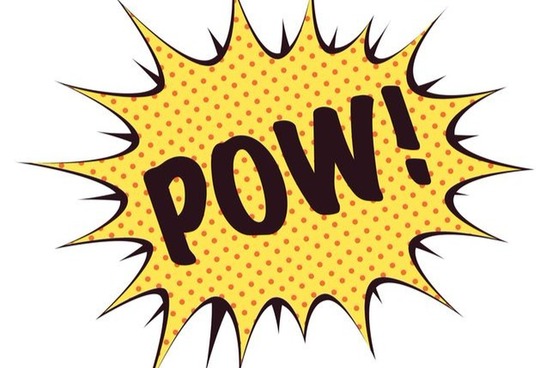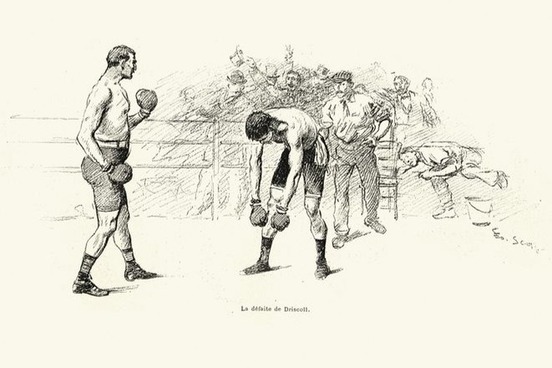
Fustigate
Definition - to beat with a stick
Fustigate is a fine example of a word that has, over the centuries, had a few drinks, loosened its collar, and relaxed and become gentler. The word comes from the Latin fustigare, which has the charming definition of "to beat to death with a stick." It came into English in the latter portion of the 17th century, with the meaning "to cudgel." Shortly after it expanded and took on the additional not-beating-with-a-stick sense of "to criticize severely." The noun form of "good proper stick beating" is fustigation.
Neither could any person of Repute be punish'd with Fustigation, nor be sent to the Mines, neither were Nobles to be punish'd by hanging.
— Alexander Seton, A Treatise of Mutilation and Demembration Divided into Two Parts, 1699

Bumbaste
Definition - to beat on the buttocks
Perhaps you're the sort of person who isn't satisfied with a word which has the etymological underpinnings of "kicking ass," and would much prefer to have a term with its literal meaning. If so, you're in luck, for that is exactly what bumbaste means. This word, which dates from the middle of the 16th century, is now found but rarely.
Bumbaste, to Beat much, or hard, on the Breech.
— B. E., A New Dictionary of the Canting Crew, 1699

Verberate
Definition - beat, strike
The initial meaning of verberate was similar to one of the common senses of reverberate; it meant to make a sound by striking something. It soon took on the meaning of striking a person; neither of these senses are terribly common in today's English. There are a few cases of reverberate being used to mean "to beat someone repeatedly," but it is rare enough that you will just confuse people if you use it that way.
You shall be verberated, and reverberated, my exact piece of stollidity: please you draw near, there is the Star of Eloquence, under whom I am an Hypodidascal, in English, his Usher.
— James Shirley, Love Tricks, 1667

Bumfeg
Definition - to thrash
This may look like a simple little word, charming in a rustic sort of fashion, but hardly the sort of thing you would choose to replace trusty old standards such as beat, thrash, or wallop. However, it comes with an interesting etymology that is somewhat...off-color. The initial portion of bumfeg is exactly what one might expect; bum, meaning "buttocks." The -feg portion of the word is from the now-obsolete word feague, meaning "to beat." So you may, if you wish, think of this as an archaic way of saying "to open a can of whoop-ass."
Now for the off-color part: in the late 18th century the word feague was also found in the dialects of some of the baser elements of society, particularly horse traders, who employed it to mean, well, there's no delicate way of phrasing this...it meant to place something energizing, such as raw ginger or a live eel, in a horse's bottom, so as to make the animal appear more sprightly than it otherwise would be. So. Now you know that.
To feague a horse, to put ginger up a horse's fundament, to make him lively and carry his tail well; it is said, a forfeit is incurred by any horse dealer's servant who shall show a horse without first feagueing him, used figuratively for encouraging or spiriting one up.
—James Caulfield, Blackguardiana: or, A dictionary of Rogues, 1793

Flyflap
Definition - to strike with or as if with a flyflap;
Flyflap has the broad meaning of "beat, or lash," and when used in an intransitive sense means "to drive away flies with a flyflap." A flyflap is "a device (as a fan) for driving away or killing flies." Should you ever have need of describing the action of striking someone with a flyswatter, this is the word you want.
The Boate-Swaine made signes to them, to weigh Anchor: & leaping toward the forecastle, in the middest of them, with his whip or Buls-Pizzle, he began to fly-flap their shoulders.
— Miguel de Cervantes Saavedra, Don Quixote (trans.), 1620

Sugillate
Definition - to beat black and blue
Sugillate is one of those words that the lexicographers of yore tried very hard to popularize, but it just didn't take. The great majority of use occurs in dictionaries; the public, for reasons unknown, seem to have decided that they have little use for this particular verb. The first known appearance was in Henry Cockeram's 1623 The English Dictionarie, a work with more than its fair share of fanciful vocabulary. Samuel Johnson and a number of other 18th century lexicographers defined it, to little avail, as the "beat black and blue" sense has remained thoroughly obscure. Come on, people; make sugillate happen.
I have reason to be perswaded that the Great Conditor of all things hath justly suffered this Hen. Stubbe to rail at you, to sugillate and sharply apprehend your more inconsiderable Experiments, because ye have been hitherto so cold in the pursuit of that practical Verity urged by me.
— George Thomson, Misochymias Elenchos, 1671

Clapperclaw
Definition - to thrash or abuse clumsily by or as if by striking with the hand and clawing with the nails
As with a number of other similar words, clapperclaw has a meaning that refers to a very specific way of hitting someone and also functions with a more general sense (in this case "to abuse with scolding, revile"). Although the word has graced the pages produced by the likes of Shakespeare, Thomas Nash, and John Dryden, it now is typically only found in dialectal use.
Now these Rival-rogues will clapperclaw one another, and I shall have the sport on't.
— John Dryden, Troilus and Cressida, 1679

Bethwack
Definition - to beat, thrash, or pelt thoroughly
As demonstrated by the previous entries, the English language has no shortage of words with which to describe the action of hitting someone. In case it was not yet made evident, hitting people is wrong (Merriam-Webster provides these words as illustration of the breadth of the English language, and in no way encourages you to act them out), and doing so is not at all funny. The words themselves, however, can be funny, and that is why we are introducing you to bethwack.
Then did this Fool of a Husband, and his mad Wife joyn together, falling on the Doctor and the Surgeon, did so scratch, bethwack, and bang them, that they were left half dead upon the place, so furious were the Blows which they received: I never in my Life-time laughed so much, as at the acting of that Buffoonry.
– François Rabelais, The Third Book of the Works of Mr. Francis Rabelais (trans. Th. Urquhart), 1693

Boxing Words
6 Words from the Boxing Ring: Their meanings have strayed from the squared circle.





